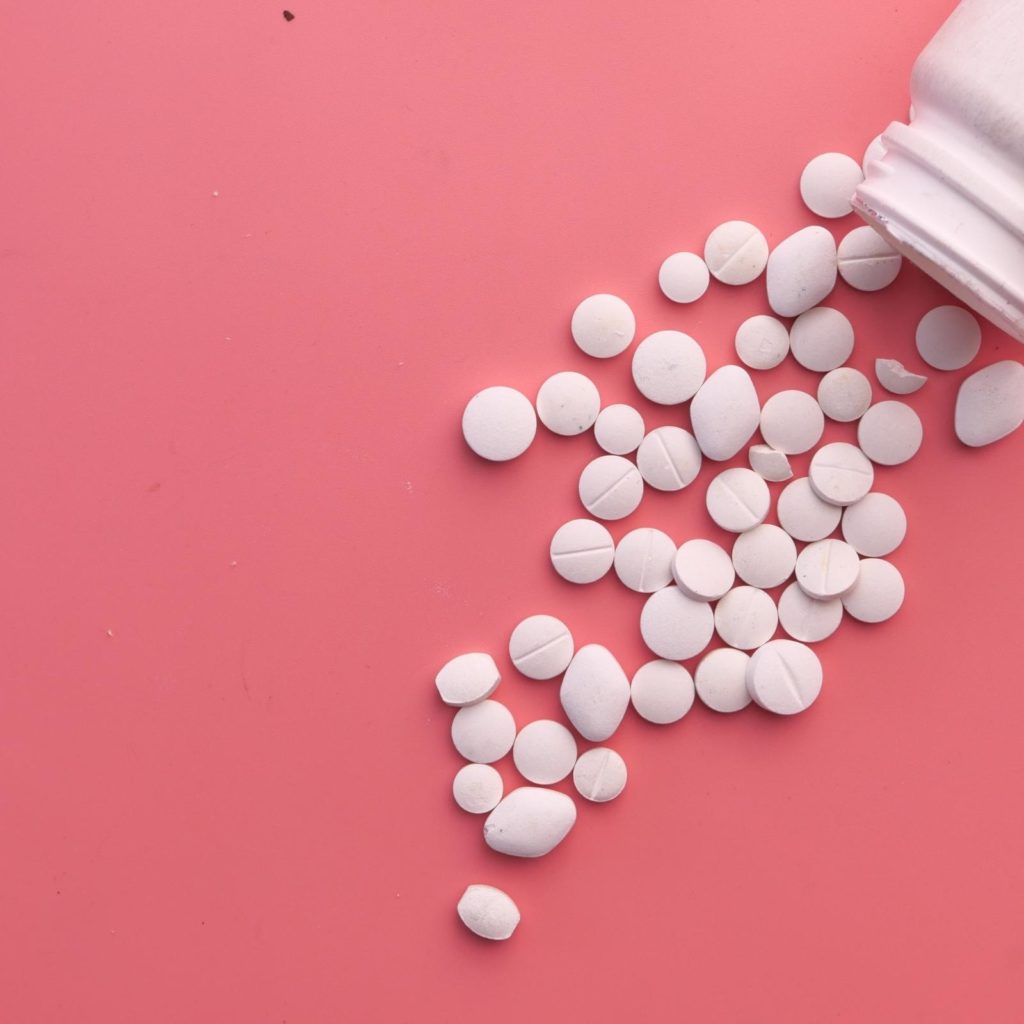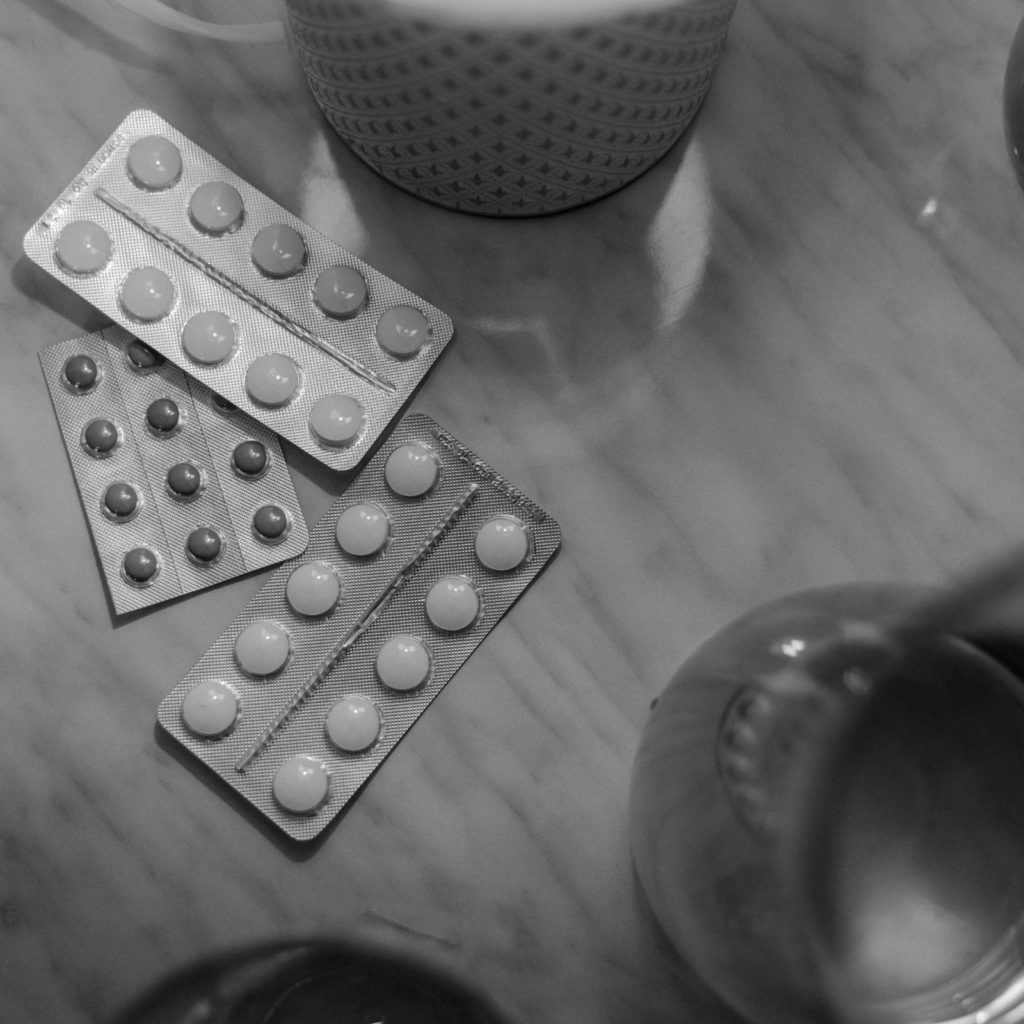Methadone Use
Methadone is one of the many medications used for treating addiction.
It’s often used for people who have become addicted to drugs like heroin and prescription painkillers. According to the American Society of Addiction Medicine, methadone was approved as an analgesic by the FDA in 1947 and was used for treating heroin and opioid withdrawal in 1950. Researchers knew, by the mid-1960s, that the drug could be used as a maintenance medication to help individuals cope with opioid addiction and function in their daily lives.
Despite the benefits, there is a downside to this common medicine. Methadone can provide an individual with a high for a few reasons. While it provides relief from cravings and blocks the feeling of euphoria, the medication itself has several properties that can allow this effect. The Substance Abuse and Mental Health Services Administration reported emergency visits related to nonmedical use of methadone had risen 73 percent from 2004 to 2008.
Potentially negative aspects of methadone include:
- A long half-life in the body
- Ingredients stay in the body after the drug’s effects wear off
- Possible interactions with other drugs

Get Your Life Back
Find Hope & Recovery. Get Safe Comfortable Detox, Addiction Rehab & Dual Diagnosis High-Quality Care.
Hotline(844) 597-1011How Does It Work?
Methadone is given as a pill, a liquid, or a wafer. The typical dose is one per day. Under most circumstances, a person will experience pain relief from about 4-8 hours. The medication also blocks the effects that make one feel high from heroin, morphine, and even hydrocodone and oxycodone. It is also used to treat moderate to severe chronic pain, the Institute for Safe Medication Practices says.
The drug’s half-life is about 24-36 hours on average, but some of the drugs can stay in the body for up to 5 days after the last dose. Stored in the liver and even other body tissues, it is eliminated at different rates depending on the individual. The faster methadone is metabolized, the more tolerant a person is. When used properly, someone who struggles with opiate addiction can function in normal daily activities, abstain from taking opiate drugs, and manage withdrawal symptoms.

Methadone Abuse
To reduce the painful symptoms associated with opiate withdrawal, methadone blocks pain. It is known to have sedative effects and impacts, such as insomnia, constipation, and weight gain. Chronic use can lead to longer action of the drug. It remains in the liver for a long time and is slowly released, triggering effects even if methadone blood levels are low.
Although its euphoric effects are limited, methadone can reduce reaction time and attention span. It also affects peripheral vision. A National Highway Traffic Safety Administration report indicates heroin addicts treated with it are “not fit to drive.” Those on a methadone high process information much slower, may be drowsy and/or have droopy eyelids, a dry mouth, and muscle flaccidity. Their body temperature and blood pressure may be low, and the person may exhibit little or no reaction to light.
To get high on methadone, abnormally high doses are required. A person would need to take methadone more frequently than prescribed. Some people opt to inject or snort methadone. This is dangerous because the drug is released into the body over time, and it builds up in the tissues. The effects of toxicity can therefore last. Methadone is listed under the Controlled Substances Act as a Schedule II substance, meaning it is illegal to use to get high, and abuse can lead to severe mental impairment and physical dependence.
Get Help. Get Better. Get Your Life Back.
Searching for Accredited Drug and Alcohol Rehab Centers Near You?
Even if you have failed previously and relapsed, or are in the middle of a difficult crisis, we stand ready to support you. Our trusted behavioral health specialists will not give up on you. When you feel ready or just want someone to speak to about therapy alternatives to change your life call us. Even if we cannot assist you, we will lead you to wherever you can get support. There is no obligation. Call our hotline today.
(844) 597-1011Can You Get High On Methadone?
Because many individuals receive prescriptions for strong painkillers every year, more and more people find themselves suffering from addiction to prescription pain medications. These are often oxycodone- or hydrocodone-based medication, such as Vicodin, Percocet, or OxyContin. Lawmakers and regulators now say that prescription pain medications are over-prescribed for problems that may not be fixed by this medication, such as chronic back pain, or they are prescribed in large quantities for post-surgery pain treatment.
Although the Food and Drug Administration does not recommend methadone as a prescription painkiller for these types of pain, over 4 million prescriptions were written for methadone in 2009. The rise in methadone prescriptions, specifically for use as a painkiller, is due to the fact that methadone is cheap, especially compared to hydrocodone and oxycodone. Insurance companies are sometimes more willing to cover the cost of methadone instead of brand-name opioid painkillers, and that has driven many people to switch their prescriptions to methadone.
Because methadone is designed to be a long-acting drug, it can build up very quickly in the body, and that can mean that taking even one more dose than prescribed can lead to an overdose. Unless carefully monitored by a medical professional, methadone use is dangerous, and abuse or addiction can lead to very serious consequences.

Methadone Side Effects on Brain
According to the National Institute on Drug Abuse (NIDA), the DEA, and scholarly sources, such as the book Mechanisms and Treatment: Opioid Dependence, methadone use produces the following:
- Sedation, euphoria, drowsiness, pain relief, and feelings of relaxation
- Side effects include pinpoint pupils, nausea, constipation, decreased respiratory rate, decreased heart rate, sweating, and mood swings (anxiety or depression)
- Effects associated with taking too much or an overdose can include a decrease in blood pressure, decreased heart rate, significantly reduced breathing or shallow breathing, twitching or tremors, itchy skin, diarrhea, vomiting, cyanosis (a bluish tint to the lips and/or fingernails), extreme lethargy, confusion, and potential comatose state
- Potential for death due to overdose
- Cardiovascular issues are often a result of injecting methadone and potentially leading to collapsed veins, arteriosclerosis, etc.
- Respiratory issues as a result of chronically reduced respiration rates
- Menstrual cycle changes in women or sexual dysfunction in men
- Issues with judgment, a tendency to engage in risky behaviors, and a lack of attention to personal hygiene
- Changes in the brain that are associated with learning and memory, particularly learning by reinforcement in the area of the brain often referred to as the pleasure or reward center
- The development of physical dependence
- The development of an opiate use disorder
First-class Facilities & Amenities
World-class High-Quality Addiction & Mental Health Rehabilitation Treatment
Rehab Centers TourRenowned Addiction Centers. Serene Private Facilities. Inpatient rehab programs vary.
Addiction Helpline(844) 597-1011Proven recovery success experience, backed by a Team w/ History of:
15+
Years of Unified Experience
100s
5-Star Reviews Across Our Centers
10K
Recovery Success Stories Across Our Network
- Low Patient to Therapist Ratio
- Onsite Medical Detox Center
- Comprehensive Dual-Diagnosis Treatment
- Complimentary Family & Alumni Programs
- Coaching, Recovery & Personal Development Events
Do People Use Methadone to Get High?
Individuals who use methadone for medicinal reasons or who abuse methadone are likely to develop a physical dependence on the drug. Physical dependence consists of tolerance (the need to use more of a drug to achieve the desired effects) and withdrawal (the appearance of a number of negative physical and emotional symptoms when an individual abruptly discontinues use of the drug or abruptly cuts down the dosage).
When an individual develops a physical dependence on any substance as a result of medical treatment, it is not generally considered to be a symptom of a substance use disorder; however, when an individual uses a substance for nonmedicinal reasons and develops a physical dependence on it, the symptoms of both tolerance and withdrawal are considered to be signs that the individual has developed a substance use disorder. The development of tolerance and withdrawal represents the interplay of both physical and emotional or psychological factors.
Finally, it should be mentioned that methadone is only legally distributed through facilities that offer these tapering or methadone maintenance programs. Methadone can only be legally obtained with a prescription, and its distribution is tightly controlled. Individuals should not attempt to obtain methadone illegally in an attempt to initiate their own tapering program, as there are a number of potential dangers associated with attempts to do this without medical supervision.
Methadone Addiction Signs
If methadone is being administered as part of an opioid cessation program, it may not be a cause for concern. However, the concern may arise if there are red flags that someone is addicted to methadone or it has become a replacement for the original opioid the individual was addicted to.
Signs someone is on methadone and potentially addicted include:
- Tolerance: As with any drug, one of the very first outward signs that someone is addicted to methadone is building a tolerance. Regardless of why someone is on methadone, if they start to adjust to the drug, they may chase the original effects it had on them. The person will take more of the drug or take the drug more frequently, often even without realizing what’s happening.
- Withdrawal: When the body is physically dependent on any substance, including methadone, physical symptoms will occur if a person suddenly stops taking it. Since the half-life of methadone is so long, it can take several days for someone to show signs of withdrawal. The signs of someone being in withdrawal from methadone can include soreness of the muscles and general achiness, diarrhea, cramping, chills, nausea, vomiting, insomnia, fatigue, and restlessness.

Loss of Control: When people are on methadone and start abusing this opioid, they may lose their sense of self-control. They tend to start using it more than they wanted to or doing illegal things to obtain the drug.
Focus on the Drug: A person struggling with a methadone addiction puts a lot of their time and energy into obtaining the drug. They may try to buy methadone illegally, or they might visit multiple doctors who can give methadone.
Stockpiling: Since methadone is so highly regulated, if people are addicted to the drug, they will often start collecting doses and skipping them when they’re scheduled. This will allow them to gather more and then take higher doses at one time for a greater effect.
While methadone use signs are different for everyone, some of the biggest red flags that someone is abusing methadone include:
- Increasing their dosage without being advised to by their doctor
- Starting to hide their drug use
- Visiting doctors and exaggerating symptoms to get more or higher doses
- Purchasing methadone illegally
- Developing an emotional attachment to using it
- Combining methadone with other substances
World-class, Accredited, 5-Star Reviewed, Effective Addiction & Mental Health Programs. Complete Behavioral Health Inpatient Rehab, Detox plus Co-occuring Disorders Therapy.
CALL(844) 597-1011End the Addiction Pain. End the Emotional Rollercoaster. Get Your Life Back. Start Drug, Alcohol & Dual Diagnosis Mental Health Treatment Now. Get Free No-obligation Guidance by Substance Abuse Specialists Who Understand Addiction & Mental Health Recovery & Know How to Help.
Methadone Addiction Treatment
Whether the person started abusing methadone recreationally or began using the medication as part of an opioid addiction treatment regime, treatment for methadone addiction requires both medical detox and comprehensive therapy for addiction.
Since methadone is an opioid, medical detox is always required to withdraw from the drug. In some instances, individuals will be gradually tapered off methadone, whereas individuals may be switched to another medication, such as buprenorphine, in other instances. Medications that may be used during treatment include:
- Buprenorphine: A semisynthetic narcotic, buprenorphine was the first medication approved by the FDA to treat opioid addictions with more flexibility. Whereas methadone is highly regulated and patients must visit clinics for their daily doses, buprenorphine can be prescribed for take-home dosages. This prescription drug does have some similarities to methadone and other opioid drugs, meaning there is some potential for abuse or addiction, but it is viewed to have less abuse potential than methadone.
- L-alpha-acetylmethadol (LAAM): This medication is a Schedule II substance that is often used in opioid addiction treatment. Like buprenorphine, LAAM is an alternative to methadone therapy. It can therefore be helpful for individuals who are struggling with methadone addiction. There are a number of side effects associated with this medication, especially when used on a long-term basis, including rash, nausea, increased blood pressure, and abnormal liver function.
- Psychiatric medications: There are many psychological and emotional effects associated with withdrawal and recovery. Medications to treat depression or anxiety can be used with careful oversight to treat these effects. These are typically administered with a psychiatrist’s prescription in addition to individual and/or group therapy treatment.
Alumni Coordinator, Nicole Baxter’s Methadone Addiction Recovery Journey With Support From Daughter Video
Nicole Baxter’s Addiction Recovery Story and Testimonial Video
“I’m here with the Nicole Baxter, one of our alumni coordinators.
What does your bottom look like?
My bottom was like a spiritual bottom. I was I wanted to die every day. I was putting a lot of drugs in my system every day, trying to make the pain go away. And it wasn’t going away anymore. So I was using for no reason anymore, because when I first started using, that’s what that was for, was to make it all go away. And it was still there. So it was like a spiritual bottom for me. I felt dead inside, and I was looking for a way out. So I prayed really hard that night, and my brother a few days later called me.
How long were you in treatment for?
A long time. I went to detox for almost a month because I was on methadone when I came down here, so my detox was painful when I finally came.
Knowing that I was away from them was hard to deal with because it was like a reality check. It was the hardest part of getting sober.
It was my biggest excuse prior to coming to not like that was my excuse. Like, I can’t go to treatment, I can’t be away my kids, but, like, I wasn’t a mom anyway, so I was getting high every day, you know? And I struggled with telling my daughter the truth about where I was. She thought that I had just comedown here to visit her uncle.
It wasn’t until I was in, like, IOP one afternoon, my therapist had me go outside and make a phone call, and I told her that I had come down for detox. And in my head, I thought that she was gonna hate me. But it was the best conversation ever. All she said to me was, Mummy, I just want you to get better. I’m just happy that you’re getting better.
What is your life like today? In sobriety, in recovery?
I’m happy, sober happier than I was high. And I thought that I’d never be happy sober. I didn’t think it was possible.
What do you do for your recovery every day? I have sponsees that I talk to on a daily basis, so I give back what I was given, which is what I think keeps me sober at most. I go to meetings, I work in treatment. So I’m like hands on with clients all daylong, people that are right where I was. So I try my best to use my story to help them get to a better place.
Oh, yeah.”
Does Addiction Rehab Work?
Although individual effectiveness in treatment can vary, longer stays in treatment are frequently associated with higher results. Seldom does detoxification alone help with long-term rehabilitation. Is treatment successful? Attending treatment increases a person’s chances of long-term recovery when compared to not doing so.
Experience Transformative Recovery at We Level Up Treatment Centers.
See our authentic success stories. Get inspired. Get the help you deserve.
Start a New Life
Begin with a free call to an addiction & behavioral health treatment advisor. Learn more about our dual-diagnosis programs. The We Level Up Treatment Center Network delivers recovery programs that vary by each treatment facility. Call to learn more.
- Personalized Care
- Caring Accountable Staff
- World-class Amenities
- Licensed & Accredited
- Renowned w/ 100s 5-Star Reviews
We’ll Call You


